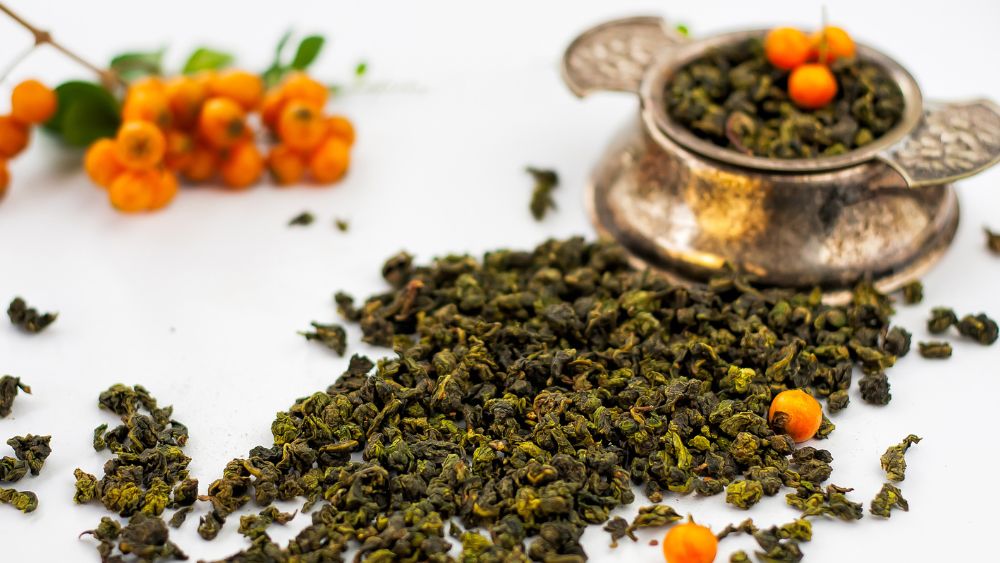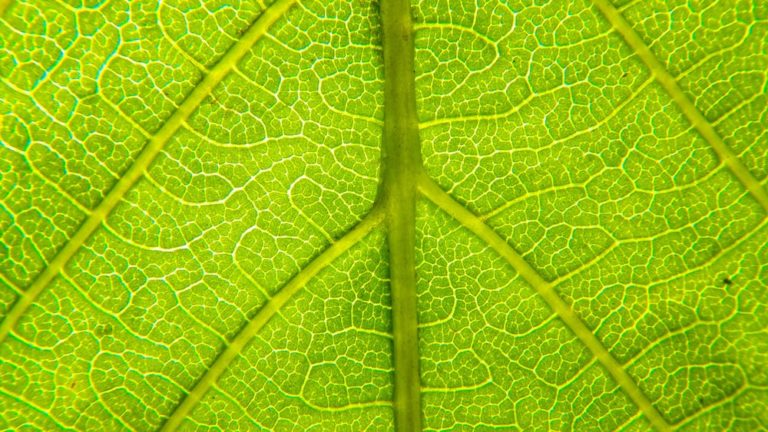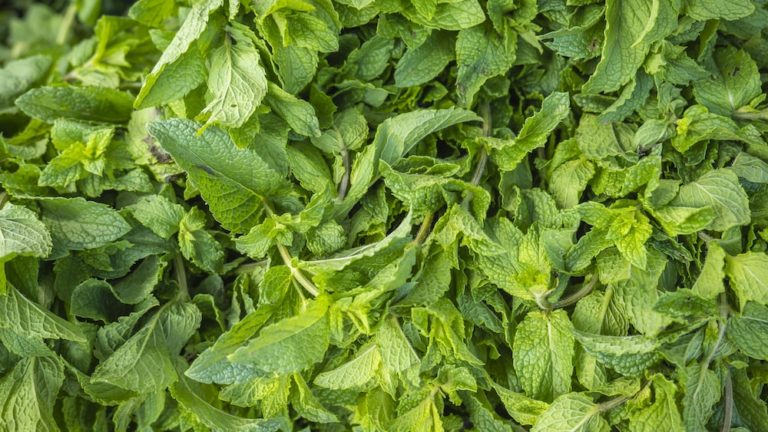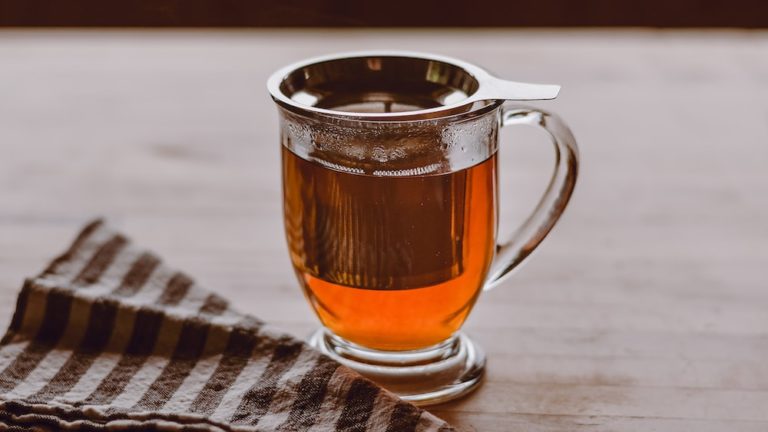Oolong Tea Side Effects: Can Oolong Tea Cause Diarrhea?

Oolong Tea Side Effects: Can Oolong Tea Cause Diarrhea?
Oh, the enigmatic world of tea! It’s a place where elixirs that calm the soul and invigorate the senses brew in pottery and porcelain. Speaking of invigorating, let’s chat about oolong tea, that majestic middle child between green and black teas, shall we? Picture this: You’re curled up with a steaming cup of oolong, feeling all kinds of zen when – bam – your tummy starts doing the rumba. What gives?
Key Points:
- Oolong tea is a complex and nuanced tea, between green and black teas.
- The tea’s production involves a delicate balance of processes, resulting in unique flavors.
- Oolong tea contains compounds such as flavonoids, theanine, and caffeine, along with antioxidants, minerals, and vitamins.
- Potential health benefits of oolong tea include antioxidant properties, heart health benefits, and metabolic benefits for weight management.
- Oolong tea can cause diarrhea due to its caffeine content and potential allergic reactions, as well as overconsumption and interactions with medications.
- Safely enjoy oolong tea by consuming it in moderation, identifying and managing sensitivities, and seeking medical advice if experiencing severe symptoms.
Now, I know what you’re thinking: is my beloved oolong tea throwing a tea party in my gut and inviting diarrhea to the soiree? It sounds far-fetched, but for some, it’s a real conundrum! So, we’re going on an infused journey to explore that burning question: Can oolong tea cause diarrhea? And I’m not just talking a bit of stomach gurgle and grumble – I mean a full-blown toilet tango.
But before we start pointing fingers at our porcelain pals, let’s dive into the art and science surrounding oolong tea. From its sun-kissed leaves to its potential health benefits, and yes, even those less than comfortable side effects, we’re steeping deep into what makes oolong tea a beverage of both reverence and suspicion. So, tighten those tea belts, dear reader, because we have a curious investigation ahead of us!
What is Oolong Tea?
If tea varieties were characters in a novel, oolong tea would be that mysterious figure with a compelling backstory. Neither fully oxidized like a brooding black tea nor as green as a naive new leaf, it’s the sophisticated enigma that captures your palate’s attention and won’t let go. Oolong tea is like liquid poetry, complex and nuanced, dancing between robust and delicate flavors.
The Origin and Production of Oolong Tea
Oolong tea’s history is steeped in a blend of myth and fact, tracing back to the Fujian province in China. Some say it was born of serendipity, an accidental oxymoron of oxidation, while others tell tales of imperial demands for a tea that would astonish and delight. The true origin? That remains shrouded in mist, like the mountains where the tea bushes thrive.
To create oolong, tea makers orchestrate a ballet of processes, each step as critical as the next. Plucking, withering, rolling, oxidizing, and firing – the tea is transformed under artisanal hands. Oolong’s peculiar character comes from partial oxidation, that delicate balance between green’s vibrancy and black tea’s maturity, an alchemistic feat that breaths life into those mercurial flavors.
Oolong tea’s history is a mysterious blend of myth and fact, with its true origin shrouded in mist like the mountains where the tea bushes thrive.
Nutritional Profile of Oolong Tea
When it comes to oolong tea’s nutritional profile, consider it the cloak-and-dagger type: subtle yet significant. Its arsenal of compounds – flavonoids, theanine, and caffeine – can sound like a team of undercover agents dedicated to keeping your body in tip-top shape.
But here’s the kicker: every cup of oolong comes with a sidekick of antioxidants, those tiny molecular heroes that scavenge for free radicals like they’re on a black-ops mission. Plus, you’re sipping on a host of minerals and vitamins that can contribute to your overall well-being – it’s like having a bit of a spa day in a teacup.
Potential Health Benefits of Oolong Tea
So, what can this ambrosial brew do for you besides whisper sweet nothings into your taste buds? Spoiler alert: oolong tea comes packing a bevy of potential health benefits that might just make it the Clark Kent of your tea stash. It’s not just about the mellow flavor; it’s about how it can possibly uplift your health game.
Antioxidant Properties and Heart Health
Saddle up; we’re diving heart-first into oolong tea’s antioxidant properties. These microscopic vigilantes are key players in cardiovascular capers, helping to guard against the dastardly deeds of oxidative stress – basically, they’re the Batman to your body’s Gotham City.
Research whispers tales about how oolong tea may lower the dials on cholesterol levels and blood pressure, potentially steering you clear from the alleyways of heart disease. Just think, every sip could be a silent nod to a healthier ticker, a gentle high-five to your circulatory system.
Weight Management and Metabolic Benefits
Calling all fellow members of the ‘fighting the flab club’ – oolong tea might just be your new sparring partner! Imagine this verdant warrior, brandishing its metabolic-boosting sword, slicing through the dragons of sluggish digestion and unwanted pounds with swashbuckling finesse.
It’s all in the catechins and caffeine, those dynamic duos in the world of weight management. They pitch in to keep your metabolism humming like a well-oiled machine. And if you’re like me, burning calories while enjoying a cuppa sounds like a victory dance on taste buds and waistlines alike.
Oolong tea can boost metabolism and aid in weight management, making it a valuable ally in the fight against unwanted pounds.
Can Oolong Tea Cause Diarrhea?
Settle down, brew brethren, as we tread into the troubled waters of a stomach storm. Can oolong tea cause diarrhea? It seems to be a delicate dance between benefit and backlash, a tightrope walked by tea enthusiasts and sensitive stomachs alike.
Caffeine Content and Gastrointestinal Effects
Let’s zero in on the zippy chemical itself: caffeine. It’s no secret that this wakey-wakey molecule can kickstart your brain and bowels with equal gusto. For those hardier souls, a little caffeine from oolong kickstarts their day without drama. But for the more tender-tummied among us, caffeine can turn your digestive system into the Wild West, complete with tumbleweeds, duels, and, well, diarrhea.
The thing is, while oolong tea doesn’t pack as much caffeine as a jitter juice (I’m looking at you, espresso), it still carries enough to potentially rouse the bowels into a state of urgent unrest. It’s as if your digestive tract is on a caffeine-fueled carousel that it just can’t get off.
Sensitivity and Allergic Reactions to Oolong Tea
Now lean in for this one because not many folks consider that oolong tea could be a mug of benevolent brew masking a potential allergen in disguise. Yes, allergic reactions to tea are rarer than a unicorn with hiccups, but they’re not completely out of the realms of possibility.
People can be sensitive to anything these days, like dairy products, pollen, or even, dare I say, certain types of tea. An unfortunate soul might experience a duel between their immune system and oolong that results in symptoms like diarrhea. And while these reactive rodeos are few and far between, if your body’s sounding the alarm with more than just a tummy grumble, you may have to bid adieu to your leafy friend.
Factors Contributing to Diarrhea from Oolong Tea
As we saunter down the path of understanding, it becomes clear that several factors may tip the scales towards tummy turmoil.
Overconsumption and Its Impacts
First on the list:overconsumption. It’s like tea Tetris; there’s only so much your system can handle before it yells “Game over!” and flushes out the excess. So yes, chugging oolong tea like water may just lead to a less than ideal reaction when your body hits the eject button.
- Drinking in moderation can typically keep the peace in your digestive neighborhood, but…
- Gulping down gallons may unleash the floodgates. Who knew too much of a good thing could lead straight to the porcelain throne, right?
Overconsumption can lead to negative reactions in your body, so it’s essential to drink in moderation.
Interaction with Medications and Supplements
There’s also a chance that oolong tea might throw a wrench in the works when it buddies up with certain medications and supplements. It’s a bit like an unexpected crossover episode where the characters don’t exactly get along.
Imagine oolong tea’s components jostling with meds in your gut like squirrels fighting over a golden acorn – the result can sometimes pressure your plumbing in a way nobody wants. So, consult your health provider before inviting oolong to your personal health party. It’s best not to mix your scripts with sips without a professional nod.
How to Safely Enjoy Oolong Tea
Sipping on oolong tea should be as serene as a leaf dancing gently to the ground in autumn. But, to keep it that way, it’s crucial to drink it mindfully. You wouldn’t want to turn a peaceful tea time into a wild rollercoaster ride for your tummy, would you? So, let’s ensure every cup of oolong is a symphony of flavors without the unexpected crescendo of side effects.
Recommended Consumption Limits
To keep things on the safe side of steep, think of oolong tea like a decadent dessert – delightful in moderation. Typically, 3-4 cups a day is the sweet spot to avoid overdoing it and the potential tummy troubles that come with it. Research suggests that this amount balances the sensations of wariness and wellness, like walking on a tightrope without falling over. If you’re caffeine-sensitive, though, you might want to dial it back a little. After all, you wouldn’t put on a heart-pounding action movie right before bed, would you?
More than just numbers, think about how your body responds. A cup too many might send you dashing like you’ve got a train to catch – and not in a good way. Remember, the line between right and might cause diarrhea is thin and best not crossed.
Moderation is key when it comes to enjoying oolong tea, with 3-4 cups a day being the ideal balance for avoiding potential discomfort while still reaping the health benefits.
Identifying and Managing Sensitivities
Much like a detective on the trail of a mysterious allergy, identifying sensitivities to oolong tea requires attention to your body’s whispers. Start by playing the game of one at a time – it’s not as fun as monopoly but way more insightful. Sip slowly and watch for any unwanted reactions, like digestive distress or a sudden caffeine-induced jitter.
If you find yourself with a fussy stomach, scaling back is key. Try weaker brews or blends with less caffeine, a bit like dimming the lights when your eyes are feeling tender. Listen to the symphony of signals your body sends. A happy tummy is like a content cat sprawled in the sunbeam of your internal garden.
And should you spot any red flags, like discomfort or allergy symptoms, treat oolong like that friend who loves to prank – don’t turn your back on it, but approach with careful consideration.
When to Seek Medical Advice
Sure, a little tummy trouble after a tea tryst may not sound like a trip to the emergency room, but stay on the alert for the more dramatic cues your body gives. A slight discomfort is one thing, but if your body is shouting from the rooftops, it’s time to call in the professionals.
Symptoms Indicating a Serious Reaction
Now, let’s talk about those symptoms that are as unwelcome as a skunk at a garden party. First up, severe or persistent diarrhea – if it’s hanging around like an unwelcomed houseguest, wave it goodbye with some medical advice.
Next, if you’re experiencing cramps that make you bend like you’re auditioning for a circus act, or if nausea sets in like a thick fog on a coastline, it’s a clear sign to stop sipping. Allergy signs, such as hives or difficulty breathing, should set off your internal alarms like a fire drill.
These are your body’s flares, signaling a need that goes beyond a simple change in tea-drinking habits. If oolong tea is the culprit of such extreme reactions, it’s time to consider that this brew might not be the buddy you thought it was.
Conditions That May Worsen with Oolong Tea Consumption
Like pairing socks with sandals, there are some things that just don’t go well together – and that includes oolong tea with certain conditions. For example, gastrointestinal disorders such as IBS might flare up like a temperamental volcano when provoked by tea.
Those with anxiety disorders may find that the caffeine in oolong makes them feel like they’re on a never-ending hamster wheel, so caution is key. Pre-existing heart conditions could also react to caffeine like a tiny chihuahua confronted by a great dane – not a pleasant scenario.
And finally, if you’re pregnant or nursing, you might want to treat caffeine-containing drinks like a risky tightrope walk over a canyon – best crossed with extra care. Always consult with your doctor, much like you’d refer to a map before a great expedition, to ensure you stay within the safe zones for your condition.
Certain conditions like gastrointestinal disorders, anxiety disorders, pre-existing heart conditions, pregnancy, or nursing may not pair well with oolong tea due to caffeine and other factors, so caution and consultation with a doctor are essential.
FAQs
1. How much oolong tea is safe to drink daily?
The safe amount of oolong tea to drink daily typically stands at 3-4 cups. It’s a dosage that lets you enjoy the benefits without inviting the unwanted side effects of overconsumption.
2. Can oolong tea interact with certain medications?
Yes, oolong tea can interact with certain medications, including blood thinners, antidepressants, and antibiotics. Always check with your healthcare provider before mixing tea with treatment.
3. Are there specific times when one should avoid oolong tea?
You should avoid oolong tea close to bedtime or if you suffer from sensitivities to caffeine, as it may lead to sleep disturbances or exacerbate anxiety.
4. What are the signs that I should stop drinking oolong tea?
The signs that you should stop drinking oolong tea include experiencing persistent digestive issues, personal caffeine intolerance, or allergic reactions such as hives or breathing difficulties.
Conclusion
Ah, oolong tea – enigmatic, enticing, and layered with depth like a good novel. But, much like a finely balanced scale, your relationship with this brew should be handled with care and awareness. Can oolong tea cause diarrhea? Indeed, it can if not enjoyed responsibly. But understanding how to navigate its complexities can unlock the doors to a worldly garden of delight and health, without the risk of an upset stomach.
Now, whether you’re a seasoned sipper or a newbie to the tea terrain, always remember to practice moderation, be aware of potential side effects, and listen to your body’s wisdom. With this, most tea tales are likely to end in comfort, not chaos. And if things go south, remember that it’s not the end of the world – sometimes, all you need is a little tweak in the brewing.
So, fill your cups with joy (and tea) in moderation, and your journey with oolong will be as harmonious as a sonnet. As we part ways, keep your spirits high and your tea cups warmer. Until next time, dear tea lovers, stay curious and stay well. With a warm hug from the steam of my own cuppa, Zoe.






